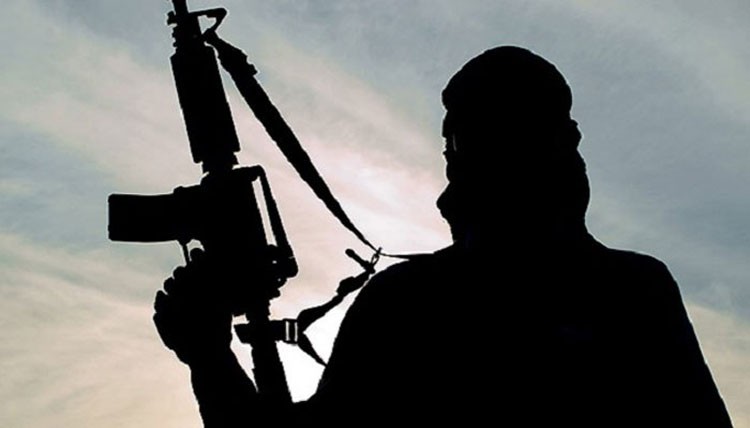
While the operation against proscribed organisations is an ongoing process under the National Action Plan, it is now being conducted with renewed vigour

There is a new wave of crackdown and combing operations against banned religious outfits in the country. The crackdown has come in the aftermath of a suicide attack in Pulwama in Kashmir in which at least 40 Indian paramilitary soldiers died.
In the ensuing conflict, both countries launched serious surgical strikes against each other at the end of February. Consistently blaming the Pakistan-based Jaish-e-Muhammad (JeM) led by Masood Azhar for Pulwama, the Indian planes violated Pakistan’s airspace and bombed what they insist on calling a JeM seminary in Balakot on February 26. This compelled Pakistan to launch its own strike across the Line of Control (LoC) and shoot down two aircrafts of Indian Air Force that tried to cross LoC from the Kashmir side.
After the Pulwama attack, Pakistani Prime Minister Imran Khan had offered full cooperation if India provided "actionable intelligence" regarding the involvement of Pakistan or any Pakistan-based group in the attack. After the Indians handed over a dossier, Pakistan has suddenly accelerated action against terrorism and banned outfits but calls it as action taken in line with the National Action Plan (NAP).
"Pakistan is committed to fight against terrorism and extremism and in line with NAP we have taken 44 persons from different banned outfits in preventive detention which include brother and a son of JeM chief Masood Azhar," state minister for Interior, Shehryar Afridi and secretary Interior told a joint press conference last week. They only named two people as mentioned above -- Abdul Rauf and Hammad Azhar. "These names are also included in the Indian dossier and we will investigate them. If there is no actionable intelligence against them (which is not so far in the dossier), the law will take its course," the secretary said.
Following the presser, the Interior Ministry also included Jamaatud Dawa (JuD) and Falah-e-Insaniyat Foundation (FIF), two alleged offshoots of Lashkar-e-Taiba (LeT), in the list of proscribed organisations. Previously, these two groups led by Hafiz Saeed were put in the list of under-watch organisations.
According to the latest list issued by the Interior Ministry, the total number of proscribed organisations in the country has now gone up to 70. Previously, Pakistan had banned JeM, LeT and many other militant outfits in January 2002 as a consequence of pressure on Pakistan in the aftermath of 9/11. Till August 2008, while Pervez Musharraf was in power, as many as 22 organisations were banned. After him, during the Pakistan People’s Party- and PML-N- led governments till January 2018, the list of banned groups went up to 66. The present government of Pakistan Tehreek-i-Insaf (PTI) has so far banned only four groups, two of them JuD and FIF most recently.
This intensified crackdown comes in the wake of tremendous pressure on the country to take serious actions against the terror-groups to come out of the "grey-list" and avoid getting into the "black-list" of Financial Action Task Force (FATF).
In recent weeks, Pakistan has indicated to freeze the accounts and seize the assets of organisations banned by the United Nations Security Council. According to a statement of the Ministry of Foreign Affairs, a new regulation ‘The UNSC (Freezing and Seizure) Order 2019’ is brought to streamline the procedure for implementation of Security Council Sanctions against designated individuals and entities.
Within two-days of the announcement to speed up implementation of the NAP, Interior Ministry claimed: "In compliance with the NAP, law enforcement agencies have taken 121 people under preventive detention (as of March 7). Besides, provincial governments have taken in their control management and administration of 182 seminaries, 34 schools / colleges, five hospitals, 163 dispensaries, 184 ambulances and eight offices which were operational under different banned outfits." However, till last Thursday, no list of these entities and places was given to the media or put on the ministry’s website.
The operation against proscribed organisations is an ongoing process and continues under the NAP which was introduced in 2014. Point three of the 20-point NAP clearly reads "Militant outfits and armed gangs will not be allowed to operate in the country".
In 2002, the then government had banned JeM, which resurfaced with the name of Khuddamul Islam, which was also banned in 2003. Later, they had reportedly been running their network quietly and action against them was seen only after some incident happened. Like, some action was taken against them after the Pathankot incident in 2016, when India alleged JeM’s involvement in the attack on an airbase. A year ago, Pakistan was expected to be included in the "grey list" of FATF after failing to take action against such groups. A few days before the FATF session, Pakistan announced a ‘crackdown’ on JuD and FIF and claimed to take over many seminaries, mosques and health and education facilities.
In a similar move, the government has once again ‘taken over’ these seminaries which were announced to have been taken under the government control a year ago.
A Supreme Court of Pakistan inquiry report on Quetta suicide bombing in August 2016, an incident that left over 70 people dead and 112 injured, has already called for taking strict action against terrorist and officially proscribed organisations.
"What to do with these organisations and charities raised in the name of jihad, and how to bring a substitute platform or counter-narrative to turn them towards other activities is a serious challenge for the state," says security analyst and director Pakistan Institute for Peace Studies Muhammad Amir Rana.
"At the moment, we are hearing about mainstreaming them but this will be fully assessed when the government comes up with a clear policy, strategy and plan of action," concludes Rana.